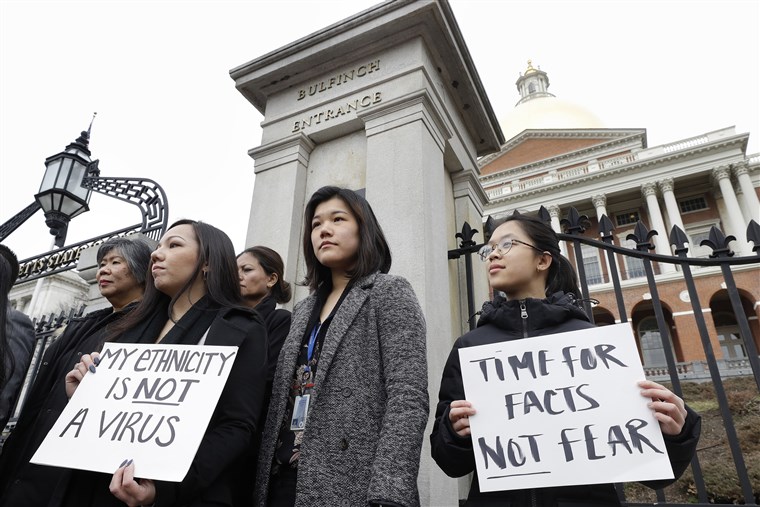#IAMNOTAVIRUS
The Rising Anti-Asian Hate Crimes Fueled by the Pandemic
The COVID-19 pandemic has resulted in a major rise in hate crimes, violence, and discrimination against Asian Americans throughout the United States. Local activists are pushing for tighter enforcement of current hate-crime laws, better cooperation with local police forces tasked with prosecuting hate crimes, and for other Americans to recognize the effect of their speech and behavior on the estimated 21 million Asian Americans in the United States.
An 84-year-old Thai-American living in San Francisco was brutally shoved in January and died as a result. Another similar accident occurred when a young man shoved three seniors to the ground in Oakland the same month. One of three senior citizens were found to be knocked unconscious. There was also a case where a 36-year-old Asian man was stabbed and admitted to the hospital in New York’s Chinatown this week. According to the New York Police Department, the suspect faced charges including attempted murder as a hate crime.
With the recent spike of hate crimes, targeting asian elderly especially, those of asian descent are absolutely torn. The massive respect owed to our elders is a value that lies at the heart of all asian cultures. Those who paved the way for us define our roots; the generational aspect of our culture is heavily embedded in our everyday lives. As kindergarteners, we’re taught to never dare talk back to our teachers or any form of authority for that matter. Our parents went on spiels and speeches about respect and selflessness, reminding us that our culture calls us to do good for the greater good of our community and family, but in this Western world that praises the individual and cultivates unhealthy ambition, Asians are too often perceived as quiet and submissive. We are prey, masked under the disguise of an ally to the white man.
Because Asian American students consistently demonstrate high academic achievements on average, Asian Americans “make it” in America off of their hard work and education. This enables outsiders to place Asians within the bubble of what we are allowed to be based on what they see us as, often throwing the words “Model Minority” in with their invalidations. The “Model Minority Myth” states that because Asians make a life for themselves through school and hard work, we are on even playing ground to White Americans and should serve as an example for other racial minorities to follow. It is in this myth where our struggles are invisible and the racism we experience are invalidated as Asian Americans.
Mika Panahon ‘21 said, “It’s really saddening to see the surge of hate crimes on Asians and even more disheartening to see that the more vulnerable members of our community, the elderly, are being attacked. It is also worthy to mention that most of Asian American culture has caused us to be silent whenever we are marginalized, in fear that we break our image as the “model minority”. It angers me that many of these crimes are fueled by the misguided impression that Asians are to blame for the pandemic. We shouldn’t be asking ourselves who “started” it when we very well know it’s the collective effort of those who refuse to wear masks, socially distance, stay home, etc. who are causing this pandemic to continue.”
When asked where we’re from, never without fail does the follow up question “but where are you really from?” appear. The lunch we unpack next to our classmates provoke second glances and subtle disgusted expressions, but the asian cuisine at a restaurant is oddly cool and “exotic.” Discriminatory comments are relabeled as jokes and if a laugh does not leave your mouth when nudged, you’re too sensitive. Over time, we’ve been taught to brush off these miniscule events but it is the accumulation of them that is harmful. Others become desensitized to the issue and overlook the racism Asian Americans recieve, further enabling hate crimes, such as recently, to occur.
Here are some things you can do to help and support the victims of hate crime attacks:
- Report any hate crime to stopaapihate.org
- Be an upstander in public settings. Training is offered by the Center for Anti-Violence Education to help stop incidents through upstander interventions.
- Record any accidents on your phone and provide statements through to law enforcement.
- Find nonprofits or corporate sponsors that provide financial support for victims and donate.
- Continue to watch over victims after the assailant has been charged. Sometimes, perpetrators come back to the communities with victims.

